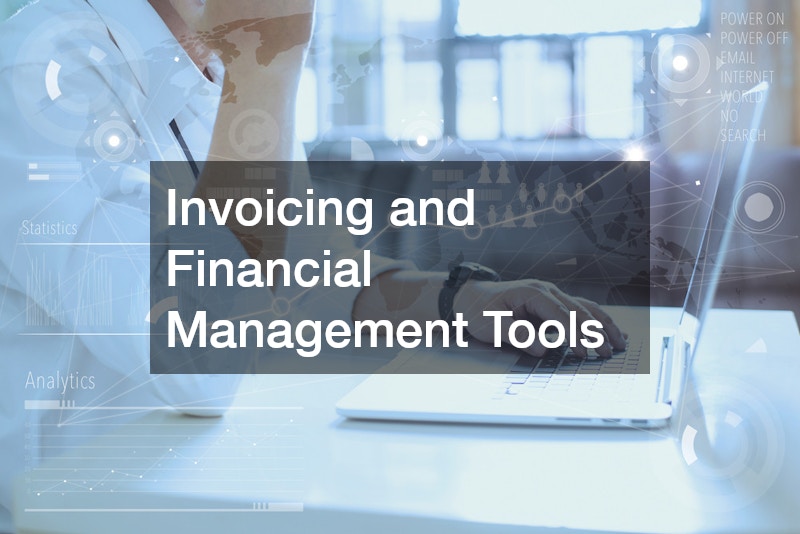Starting a new business can be an exciting yet daunting journey. One of the most critical aspects of building a successful company is understanding where to allocate your resources. While it may be tempting to focus solely on branding and marketing, ensuring you invest in the right areas from the outset can make or break your venture. Let’s take a look at the essential investments new business owners need to prioritize to ensure long-term success.
1. Insurance to Protect Your Business
Whether you’re starting a fitness coaching enterprise or a small-scale landscaping business, insurance is a critical investment. For example, a fitness trainer will need fitness trainer liability insurance to cover any accidents or injuries that could occur during a session. This type of insurance protects you from costly legal claims and ensures that your business continues to run smoothly.
Similarly, businesses that involve physical work, such as landscaping or contracting, should invest in comprehensive insurance policies to cover liability, equipment, and employee safety.
2. Invoicing and Financial Management Tools

Managing finances is one of the most critical tasks for any business, and investing in the right tools can save you both time and money. If you’re running a lawn care business, for instance, you’ll need reliable lawn care business invoicing software to help you keep track of payments, schedule jobs, and generate invoices effortlessly. Having a robust invoicing system in place ensures you get paid on time and allows you to better manage your business cash flow.
For other industries, such as consulting or creative work, cloud-based accounting systems can offer similar benefits, giving you insights into your financial health and helping to streamline tax season.
3. Professional Services for Legal and Financial Advice
Navigating the legal and financial waters of a new business can be tricky without expert guidance. Investing in the services of a business attorney is crucial for protecting your business legally, helping with incorporation, contracts, and compliance issues. Many new business owners overlook the importance of having legal protection in place until they face a lawsuit or regulatory issue. By partnering with a skilled attorney early on, you can avoid costly mistakes.
Additionally, working with an accountant or financial advisor can provide you with insights on tax planning, cash flow management, and long-term financial planning. These professionals ensure that you’re not only compliant with local laws but also financially stable.
4. High-Quality Office Equipment and Furniture
Even in the digital age, most businesses still require physical office space. This means investing in the right office setup is vital to boost productivity and employee satisfaction. Sourcing items from reputable office furniture businesses is a smart move to create a professional, comfortable work environment. Ergonomic chairs, sturdy desks, and effective storage solutions contribute to your team’s health and productivity.
Additionally, consider technology investments like laptops, printers, and high-speed internet. These tools will help you run your business efficiently, no matter where you or your team are located.
5. Commercial Contractors for Specialized Jobs
At some point, you may need to expand or remodel your business space. Hiring commercial general contractors ensures that any building or renovation work meets the required standards, both structurally and legally. These contractors manage everything from electrical work to building codes, so you can focus on other aspects of your business while the professionals handle construction.
Moreover, investing in commercial movers is essential if you’re transitioning from one location to another. Professional movers reduce downtime and help protect your equipment during the relocation process.
6. Digital Marketing and Advertising

In today’s marketplace, a strong digital presence is essential for any business to succeed. Investing in digital marketing—such as search engine optimization (SEO), social media marketing, and paid advertising—will help get your brand in front of the right audience.
For local service-based businesses like driveway paving services, investing in online advertising through Google or Facebook can generate leads and help build a steady stream of clientele. Focusing on content marketing, like writing blogs or creating informational videos, can also enhance your SEO and make your business a go-to resource in your industry.
7. Hiring Local Contractors and Services
Partnering with local landscaper contractors, electricians, and other professionals is a smart investment, especially for new business owners. Local contractors are not only more accessible but also familiar with local laws, regulations, and market demands. If you’re opening a brick-and-mortar establishment, landscaping can make a powerful first impression on customers, enhancing curb appeal and setting your business apart from the competition.
Similarly, hiring a small business electrician ensures that all electrical work is done safely and to code. Electrical issues can be dangerous and lead to costly damages, so investing in professional services is crucial for business longevity.
8. Machinery and Equipment
For businesses in construction, logistics, or manufacturing, investing in high-quality equipment is essential. Partnering with reliable heavy equipment companies ensures that you have access to well-maintained machinery, whether you need cranes, bulldozers, or forklifts.
Leasing or financing options are often available, which can make acquiring necessary equipment more affordable for new businesses. Regular maintenance and proper operator training are equally important to ensure longevity and safety in the workplace.
9. A Solid IT Infrastructure
In a world where data breaches and cyber threats are becoming increasingly common, investing in a secure IT infrastructure should be a priority for all new business owners. Whether you’re running an e-commerce site or a small office, having the right cybersecurity measures in place can protect your customer data and financial information.
You may also need to invest in IT services for setting up hardware, software, and networking systems. As your business grows, consider cloud storage and collaboration tools to streamline operations.
10. Training and Development for Employees

A well-trained workforce is one of the best investments you can make as a new business owner. Offering training programs not only equips your employees with the skills they need to excel but also improves employee retention rates. Whether it’s customer service, sales, or industry-specific training, developing your team’s expertise can lead to improved efficiency and better overall performance.
Investing in employee development doesn’t just boost morale; it helps your business evolve in a competitive market.
11. Commercial Real Estate Investments
Securing a physical location is an essential investment, especially for businesses that rely on foot traffic or physical presence, such as retail stores or fitness centers. Whether you’re leasing or buying property, carefully consider the location, size, and accessibility of the space.
For fitness centers, having a dedicated space allows you to create a tailored environment for clients. Paired with fitness trainer liability insurance, you can operate with the peace of mind that both your property and clients are protected.
12. Marketing and Customer Relationship Management (CRM) Software
To build and maintain strong customer relationships, invest in customer relationship management (CRM) software. This type of software allows you to track customer interactions, follow up on leads, and create personalized marketing strategies. For businesses offering services like driveway paving or landscaping, maintaining a database of past clients helps generate repeat business and referrals.
CRM tools streamline client communications, helping you stay organized and better manage your sales pipeline. Many of these systems also offer features that automate marketing tasks, making it easier to target the right customers.
13. Fleet and Transportation Management
If your business relies on transportation—such as logistics, delivery services, or landscaping—managing a fleet of vehicles may become a critical investment. Fleet management tools can track vehicle usage, fuel consumption, and maintenance schedules, helping you optimize your transportation costs. Investing in fuel-efficient vehicles and maintaining your fleet can save money in the long run.
For businesses working with commercial movers or heavy equipment, managing logistics effectively ensures smoother operations and reduces downtime.
14. Local Networking and Partnerships

Investing in local networking opportunities can be just as important as marketing. Joining local business groups, attending industry events, and partnering with other local businesses can help you expand your reach and establish a strong reputation in your community. For instance, a lawn care business might partner with a local landscaper contractor to offer bundled services, creating a win-win for both businesses.
Developing these relationships early on can help you access resources, find mentors, and grow your client base faster.
15. Outsourcing Non-Core Functions
As your business grows, it may be beneficial to outsource non-core functions like payroll, human resources, or IT. While these tasks are necessary, they can often take valuable time and focus away from your core business activities. Outsourcing can help streamline operations and allow you to focus on what you do best.
For example, if you’re running a landscaping company, outsourcing administrative tasks like invoicing or hiring a business attorney to handle legal contracts allows you to focus more on your projects and customer satisfaction.
16. Security Measures and Asset Protection
Security is a vital investment for any business, whether you’re running a retail store, an office, or an industrial facility. In addition to cybersecurity, physical security is also important. Surveillance cameras, access control systems, and security personnel can help protect your assets and reduce the risk of theft or vandalism.
This is especially important for industries that deal with high-value inventory or expensive equipment, such as heavy equipment companies. The right security measures help ensure the safety of your property, employees, and customers.
Starting a business comes with numerous challenges, but prioritizing the right investments can set the foundation for success. From purchasing fitness trainer liability insurance to investing in reliable lawn care business invoicing software or hiring professional commercial general contractors, these strategic decisions help new business owners build a solid foundation.
Whether you’re launching a small-scale service or managing a larger operation, keeping your investments focused on security, efficiency, and long-term growth ensures your business will thrive for years to come.
